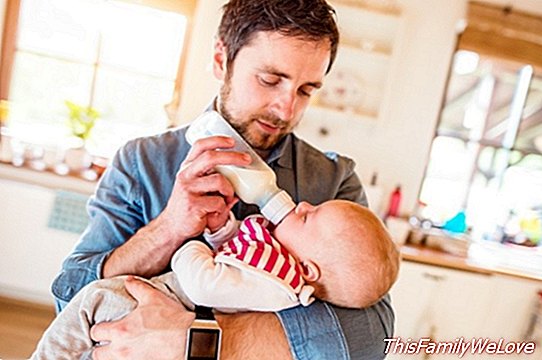The role of father and mother are equated in today's society

A family is a nucleus where chores They are distributed among the members. However, traditionally, the mother has been responsible for tasks such as caring for children. Women have been involved in raising children while parents have been engaged in other tasks. But with the passage of time, this situation has changed and both roles have been equated.
This is indicated by the study carried out by the Autonomous University of Barcelona where it is shown that the role of father and mother have been equated in recent times. Men have become even more involved in the breeding of their children, now they are not only those who provide an economic support to the family, they are also directly involved in the needs and care that children require.
The meaning of fatherhood
To analyze the situation of paternity, the researchers went to those who could best define it: the parents. The researchers formed 5 discussion groups and another 3 in Barcelona from May to July 2015, all of them formed by men with children of different social groups who had to debate on how they understood the process of raising a child. That is, what it meant to them to be a father.
At the same time, the results were shared with the level socioeconomic and of studies of the parents to find out if there could be any relation between both. The researchers found three different ways of understanding fatherhood:
- Logistic fatherhood. Men understood to be a father as an obligation to provide financial support to the family and little involvement in other tasks of child rearing.
- Educational parenthood. It is the father who acts as a link between the child and the outside world, the form and prepare for the position they will occupy in society.
- Relational-communicative paternity. Paternity model that is based on a closer attitude of the father to his children. It supposes an identical implication to the one of the mother where an emotional bond between both is created very deep.
The new fatherhood
The results of this study reveal that in the actual society a new model of paternity is being imposed. A paradigm far removed from that man who was only responsible for the economic provision of the family and who is more in charge of the child's care. In this way, children gradually acquire a more central space in the life of their parents. However, gender differences and some elusion are still found to perform certain tasks.
Those child care tasks that require a greater involvement they are still performed more often by mothers than by parents. Another aspect to highlight in this regard is the presence of greater logistic paternity in the lower social strata. On the other hand, men with a higher level of education are more oriented towards the relational-communicative model.
It should also be noted that in those cases where the communicative-model model is present, parents integrate a horizontal dialog with his kids. This implies a greater presence of children in the home and a lesser fear of sharing their feelings, fostering the bond within the family nucleus.
Damián Montero




